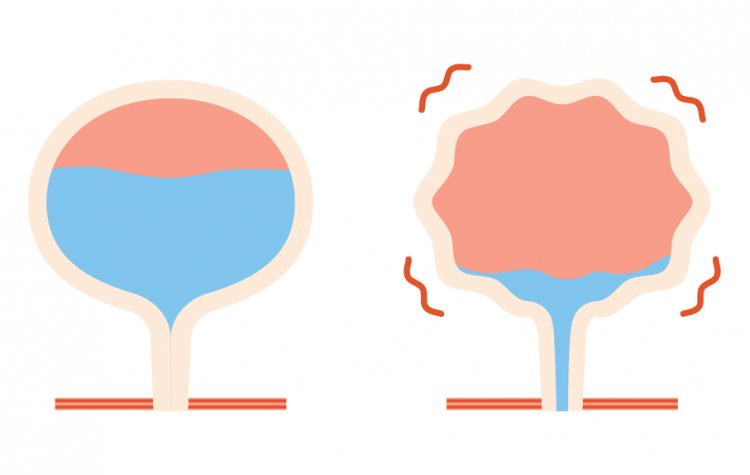Nighttime Nuisance: Managing Nocturia for Better Sleep
Definition of Nocturia Nocturia is defined as the condition in which an individual wakes up one or more times during the night to urinate. It is important to distinguish nocturia from enuresis (bedwetting), as nocturia involves waking up to void, while enuresis does not. This condition can significantly disrupt sleep patterns and overall quality of life. Although nocturia is more common in older adults, it can occur at any age and is often indicative of underlying health issues.

Medical Explanation of Nocturia
Nocturia Classification
Nocturia is classified based on the number of times one wakes to urinate per night:
- Mild Nocturia: Waking up once per night.
- Moderate Nocturia: Waking up two to three times per night.
- Severe Nocturia: Waking up more than three times per night.
Causes of Nocturia
Nocturia can arise from a multitude of causes, often categorized into several primary mechanisms:
Nocturnal Polyuria
- Circadian Rhythm Disruption: Normally, antidiuretic hormone (ADH) levels increase at night to reduce urine production. Disruptions in this rhythm can lead to excessive nighttime urine production.
- Age-related Changes: As people age, there is often a decrease in ADH secretion at night, leading to increased urine production.
Global Polyuria
- Diabetes Mellitus: High blood sugar levels cause an increase in urine production.
- Diabetes Insipidus: A condition characterized by an imbalance of ADH, leading to large volumes of dilute urine.
- Excessive Fluid Intake: High fluid consumption throughout the day can contribute to nocturia.
Reduced Bladder Capacity
- Overactive Bladder Syndrome: Characterized by sudden urges to urinate and frequent urination.
- Bladder Obstruction: Conditions such as benign prostatic hyperplasia (BPH) in men can reduce bladder capacity.
- Interstitial Cystitis: A chronic condition causing bladder pain and frequent urination.
Sleep Disorders
- Obstructive Sleep Apnea (OSA): OSA causes intermittent hypoxia, leading to increased urine production via the release of atrial natriuretic peptide (ANP).
- Insomnia: Poor sleep quality can make individuals more aware of their need to urinate.
Medications
- Diuretics: Medications that increase urine production, often used to treat hypertension or heart failure.
- Certain Antidepressants and Antipsychotics: These can also influence bladder function and urine production.
Other Health Conditions
- Heart Failure: Fluid accumulation in the body during the day may be mobilized at night when lying down.
- Liver Failure: Leads to fluid imbalance and potential nocturia.
- Neurological Disorders: Conditions like Parkinson's disease and multiple sclerosis can affect bladder function.
Symptoms of Nocturia
The main symptom of nocturia is waking up at night to urinate. Additional symptoms include:
- Difficulty falling back asleep after urinating.
- Daytime fatigue and sleepiness due to disrupted sleep.
- Frequent urination during the day.
- Urgency and sometimes incontinence.
Diagnosis of Nocturia
Diagnosing nocturia involves a comprehensive evaluation, including:
- Medical History: Detailed patient history to identify underlying conditions and medication use.
- Physical Examination: To detect physical signs of conditions like BPH or heart failure.
- Bladder Diary: Patients record fluid intake, urination times, and volumes over several days.
- Urinalysis and Blood Tests: To check for diabetes, infections, or renal function.
- Imaging and Urodynamic Studies: Ultrasounds or bladder function tests to identify structural or functional abnormalities.
Treatment of Nocturia
Treatment aims to address the underlying causes and improve the patient’s quality of life. Approaches include:
Lifestyle Modifications
- Fluid Restriction: Limiting fluid intake, especially in the evening.
- Caffeine and Alcohol Reduction: These substances can increase urine production.
- Timing of Medications: Adjusting diuretic dosing to earlier in the day.
Behavioral Interventions
- Bladder Training: Techniques to increase the time between voiding.
- Pelvic Floor Exercises: To strengthen muscles and improve bladder control.
Medical Treatments
- Desmopressin: An antidiuretic that reduces urine production.
- Anticholinergics: Medications to reduce bladder spasms in cases of overactive bladder.
- Alpha-blockers and 5-alpha-reductase inhibitors: For men with BPH to improve urine flow and reduce nocturia.
Treatment of Comorbid Conditions
- Managing Diabetes: Ensuring blood sugar levels are controlled.
- Treating Sleep Apnea: Use of CPAP machines to maintain airway patency.
- Heart Failure Management: Medications and lifestyle changes to control fluid accumulation.
Surgical Interventions
In cases where nocturia is due to anatomical abnormalities, surgical options may be considered, such as transurethral resection of the prostate (TURP) for BPH.
In conclusion, Nocturia is a multifactorial condition that can significantly impact a person’s quality of life. Proper diagnosis and individualized treatment plans are essential to manage nocturia effectively. Through a combination of lifestyle changes, behavioral interventions, medical treatments, and possibly surgical options, patients can achieve better control over their symptoms and improve their overall well-being. Consulting a healthcare provider for a thorough evaluation is crucial for anyone experiencing frequent nocturnal urination.
Disclaimer: The information provided in this article is for educational purposes only and should not be considered medical advice. If you have any health concerns or are experiencing symptoms, it is important to consult with a healthcare professional, such as a doctor or clinic, for proper diagnosis and treatment. Always seek the advice of your doctor or other qualified health provider with any questions you may have regarding a medical condition. Do not disregard professional medical advice or delay in seeking it because of something you have read in this article.
#Nocturia #Health #SleepDisorders #MedicalInfo #BladderHealth #Urology #NightTimeUrination #HealthyLiving #MedicalAdvice #ConsultYourDoctor
What's Your Reaction?





















